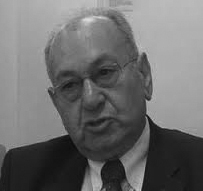
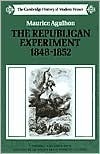
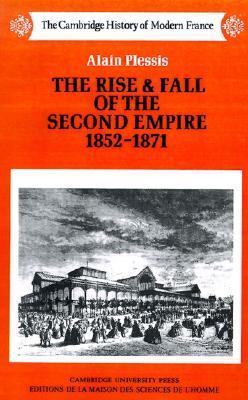
The Cambridge History of Modern France
Series · 7 books · 1983-2002
Books in series

#1
Restoration and Reaction, 1815 - 1848
1984
Providing a detailed introductory account of the course of French history during the period immediately following the great revolutionary upheaval, this work begins with the re-establishment of the Bourbon monarchy in France in 1815 and ends with the fall of the monarchy in 1848.

#2
The Republican Experiment, 1848-1852
1983
Before 1848, France had been ruled by the 'July Monarchy', a liberal regime without democratic participation. After 1852, France was to be ruled by the Second Empire, an anti-liberal regime with some democratic participation. In the intervening period, the Second Republic boldly attempted to combine liberty with democracy for the first time in French history. Despite the Republic's failure of 1851–2, its aims were of great significance and marked the beginning of the modern era of republican the starting-point of what we nowadays consider the normal standard of politics in civilised countries. The reasons for the Republic's temporary failure are no less instructive, and in explaining them Professor Agulhon considers the problems of social conditions and the psychological 'apprenticeship' of the masses of new citizens. Thus his book has a special purpose, beyond the narrative treatment of to emphasise the relationship between the political history of France 1848–52 and the history of popular culture and thought.

#3
The Rise and Fall of the Second Empire, 1852 - 1871
1985
The Second Empire lasted longer than any French regime since 1789, yet most historical accounts of the government of Napoleon III have been overshadowed by the knowledge of its disastrous and tragic end. As Professor Plessis shows in this detailed thermatic study, such an approach ignores the major social, economic, and political developments of a period that witnessed the gradual acceptance of univeral suffrage, the establishment of large-scale industrial capitalism, a massive improvement in communications, and the birth of impressionism in art.
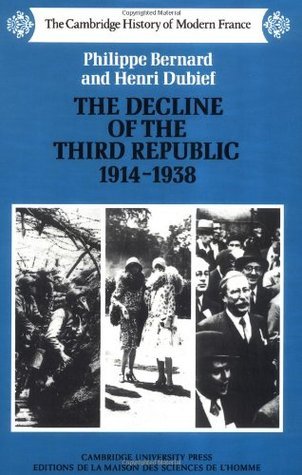
#5
The Decline of the Third Republic, 1914-1938
1985
This book provides a detailed account of the Third Republic in France between the outbreak and conduct of the First World War and the fall of Leon Blum's Front Populaire soon after Hitler's invasion and annexation of Austria in 1938. Following the trauma of war, France slipped into the "era of illusions" which despite the comparative prosperity of the 1920s led to the slump and the severe social and economic unrest of the 1930s. The short-lived experiment of Blum's Front Populaire gave way to more conservatively-based ministries, but by 1938 a new common enemy began to draw together the political opinion of the country.

#6
De Munich à la Libération, 1938-1944
2002
De la déroute de l'année 1940 à la période sombre de la France à l'heure allemande, l'ouvrage de Jean-Pierre Azéma propose une grille de lecture capable de donner de l'apparent chaos de ces années noires une explication globale. Rendre raison de ces temps de guerre et de leurs contradictions sans s'arrêter à des études partielles (le rôle de la milice, la résistance, la collaboration d'état), telle est l'ambition de cet ouvrage qui dresse avec toute la lucidité nécessaire le bilan de cette période de souffrance et de passions.
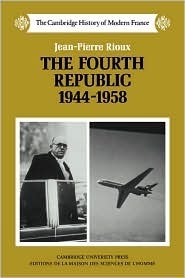
#7
The Fourth Republic, 1944–1958
1987
The combination of political uncertainty, external crisis and internal economic expansion that characterized the French Fourth Republic renders the period 1944–1958 one of unusual complexity, and in this masterly survey Jean-Pierre Rioux unravels its often torturous rise and fall. Growing consumerism and demographic change were the most striking manifestations of the successful reconstruction of the war-ravaged French economy, yet the political foundations of the Fourth Republic became ever more fragile, as a series of unstable and short-lived ministries proved incapable of confronting the twin challenge presented by domestic indifference and bitter, often violent, interference from French colonist abroad. When, in 1958, the Algerian crisis threatened to provoke a full-scale military coup, the existing political orders swiftly crumbled, its authority either derided or ignored. The coexistence of prosperity and chronic instability is not the least intriguing aspect of the history of the Fourth Republic, and Professor Rioux's duly rounded account gives due weight to the cultural and social context in which such a paradox became possible.

#9
The Pompidou Years, 1969–1974
2000
This is the most authoritative account available of the presidency of Georges Pompidou. Pompidou consolidated the constitutional changes made by de Gaulle, to the extent that he is now regarded as the Fifth Republic's second founding father, and continued his haughty attitudes to foreign policy. He also launched a program of modernization and industrialization: under Pompidou France saw both the climax and the end of the postwar boom. Serge Berstein and Jean-Pierre Rioux analyze the politics of the period, and also give an overview of France's economy, culture and society.
Authors
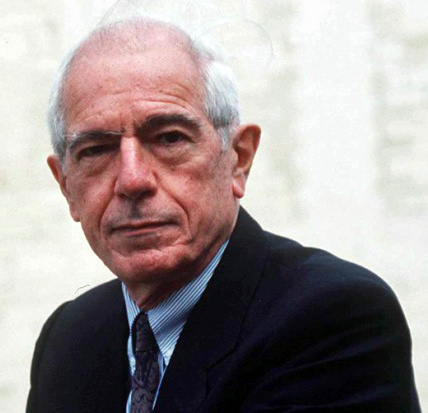
Maurice Agulhon
Author · 2 books
MAURICE AGULHON, né en 1926 à Uzès (Gard), est décédé le 28 mai 2014. Historien français spécialiste d’histoire contemporaine, il enseigna au Collège de France, de 1986 à 1997, après avoir été professeur à la Faculté des lettres d’Aix (Université de Provence, Aix-Marseille I), puis à l’Université Panthéon-Sorbonne (Paris I). Ses premiers travaux portent sur la Révolution de 1848 en Provence, mais il devient rapidement un spécialiste des institutions de la République et de la symbolique républicaine, qu’il étudia notamment à partir de la figure emblématique de Marianne. Il fut président de la Société d'histoire de la révolution de 1848 et des révolutions du XIXe siècle, de 1975 à 1981 et vice-président de la Société d’études jaurésiennes, de 1976 à 2011.
Jean-Pierre Rioux
Author · 3 books
Jean-Pierre Rioux was a French historian. He was director of research at the Institut d'histoire du temps présent from 1980 to 1991. Rioux was a recipient of the Legion of Honour (2000) and Ordre national du Mérite (2011).
André Jardin
Author · 1 book
André Jardin (1912–1996) was a French biographer and historian, best known for his studies of Alexis de Tocqueville and 19th century French history.
